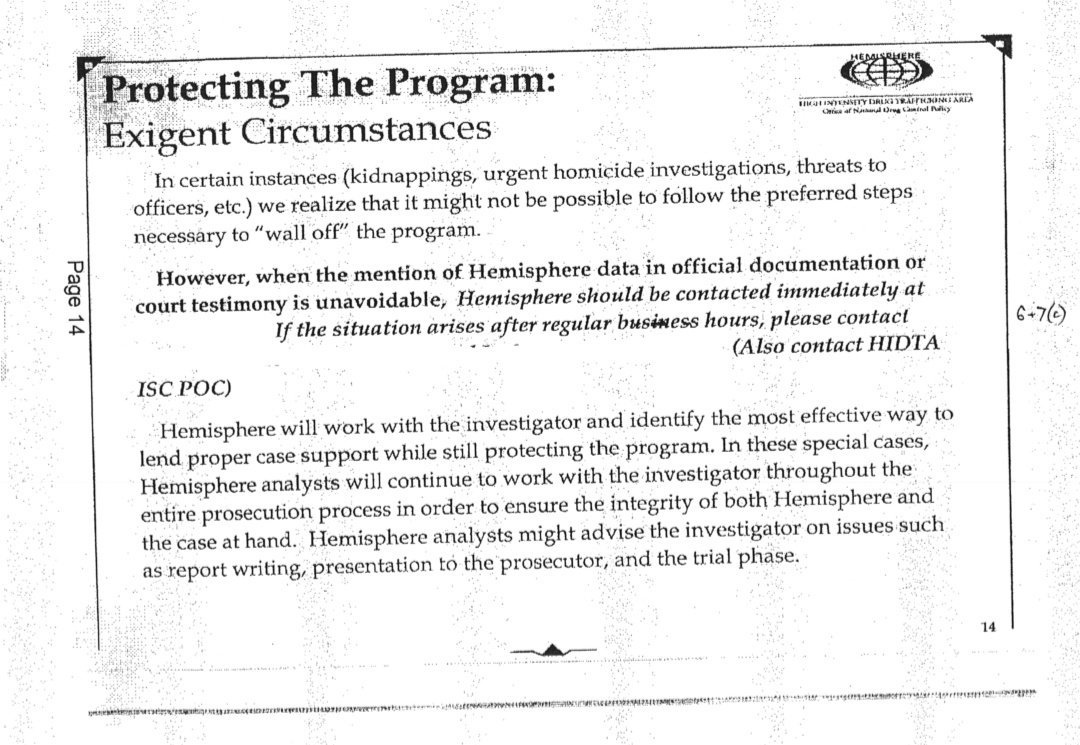
Alright, so this is a pretty succinct explanation of how "parallel construction" works, as taken from some explainer slides about the DEA project HEMISPHERE that collected call data records for every single phone call that touched an AT&T switch for like 30 years. 







The "walling-off" of the project itself by using it to generate leads without referring to it *anywhere* in something that a defense attorney might eventually see (& challenge in court) allows it to stay "protected" from constitutional challenges.
This is especially important if the project (unlike HEMISPHERE) is classified because ... well, no one is supposed to know that it exists and a defense attorney can use discovery to reveal details about its operations and then the project is basically worthless.
Earlier I wondered if the FBI was using some kinda dragnet to identify low-visibility accounts and censor them (and I still think it's doing that because it's them), but then I remembered that one email where it was asking for location data for like 12 accounts.
Then I thought about it some more: what if that "moderation" portal was also a way for FBI (& others) to request information that it already knows, but doesn't want to say how it knows, so it "walls-off" its sources & methods by just getting Twitter to voluntarily hand it over.
Negotiating all these finer points was James Baker's like entire career. So: what was he doing on the Trust & Safety Council? Was he helping the FBI use Twitter to censor people or was he using Twitter to help the FBI spy on them? Or both? Probably both. 

• • •
Missing some Tweet in this thread? You can try to
force a refresh












